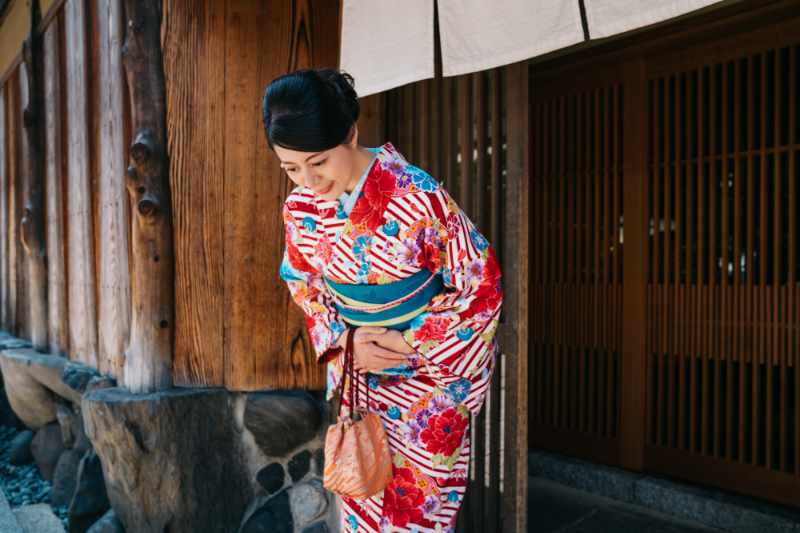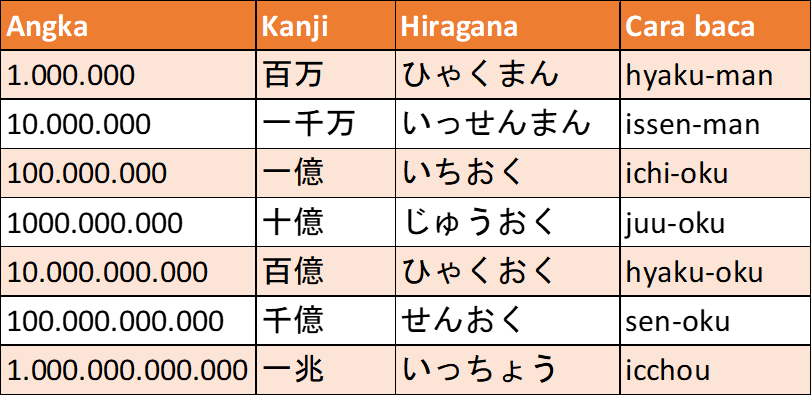Apa Itu Kepo dan Artinya dalam Bahasa Inggris?
Di Indonesia, ada istilah yang cukup sering kita dengar yaitu ‘kepo’. Kepo dapat didefinisikan sebagai rasa ingin tahu yang berlebihan terhadap kehidupan atau urusan orang lain. Sebuah keinginan untuk tahu tentang urusan, rahasia, atau informasi pribadi yang tidak terkait dengan diri kita sendiri.
Banyak orang dikatakan kepo ketika mereka sembarang bertanya tentang sesuatu atau mengajukan pertanyaan pribadi yang sebenarnya tak perlu ditanyakan. Namun, seringkali kepo juga bisa menjadi sifat yang baik ketika kita ingin lebih memahami situasi atau orang di sekitar kita. Terlebih lagi, dengan kepo kita bisa mendapatkan informasi penting yang bisa membantu kita untuk memecahkan masalah atau melihat sesuatu dari sudut pandang yang berbeda.
Namun, dalam beberapa kasus kepo ternyata dapat menimbulkan masalah serius. Karena ingin tahu berlebihan, kita bisa memasuki ruang pribadi orang lain yang membuat mereka merasa tidak nyaman. Atau, kepo bisa memicu rumor dan gosip yang akhirnya membahayakan kepercayaan dan persahabatan kita dengan orang lain. Oleh karena itu, meskipun kepo tampak seperti isyarat kuriositas yang ramah, pada akhirnya kita harus bijak dan memilih waktu yang tepat sebelum bertanya atau mencari tahu tentang hal-hal yang bersifat personal bagi orang lain.
Dalam bahasa Inggris, istilah ‘kepo’ tidak memiliki terjemahan langsung. Namun, jika kita harus mendefinisikannya dalam bahasa Inggris, kepo dapat diterjemahkan sebagai “overly curious” atau “interfering”. Karena kata ‘kepo’ adalah kosakata yang unik dan khas di budaya Indonesia, mungkin tidak mudah untuk menjelaskannya dalam bahasa Inggris secara tepat dan lengkap. Oleh karena itu, selain “overly curious” dan “interfering”, ada juga beberapa istilah lain yang dapat digunakan untuk menjelaskan pengertian kepo di dalam bahasa Inggris, seperti “meddling”, “nosy”, atau “prying”.
Seperti halnya di Indonesia, kepo atau overly curious di negara lain juga dapat menjadi ciri khas dalam budaya yang berbeda. Dalam budaya Amerika, gaya hidup yang tinggi dan keinginan untuk tampil sempurna menjadi hal yang utama, sehingga informasi yang sifatnya pribadi dan bersifat kurang formal pun sering dianggap sebagai hal yang wajar. Namun, di Jepang, budaya memiliki standar kebijakan privasi yang tinggi sehingga pertanyaan-pertanyaan yang terlalu personal dianggap sebagai tindakan yang tidak sopan dan menjaga jarak dianggap sebagai hal yang penting.
Dalam kesimpulan, kepo merupakan rasa ingin tahu yang berlebihan terhadap urusan pribadi atau kehidupan orang lain. Meskipun pada beberapa kondisi, sifat ini bisa dianggap sebagai sifat yang baik, namun pada banyak kasus kepo juga bisa menimbulkan konflik dan masalah antar personal. Karena itu, sebaiknya kita harus menjaga kepekaan kita terhadap orang lain dan tidak mengurangi rasa hormat terhadap privasi atau kesengajaan orang lain. Demikianlah pengertian kepo dalam bahasa Indonesia dan beberapa pengertian atau istilah dalam bahasa Inggris yang dapat kita gunakan untuk menjelaskannya.
Popularity of Kepo Culture among Indonesian Youth
Kepo culture has undoubtedly become one of the most popular cultures among Indonesian youths. It has its roots in the Indonesian language, where “kepo” refers to someone who is very curious and likes to ask many questions. This culture has become a daily routine for Indonesian youths, and it has impacted the way people socialize, communicate, and interact with each other on social media and in the real world.
There are a few reasons why kepo culture has become so popular among Indonesian youths. Firstly, social media is a significant contributor to the popularity of kepo culture. Many young people use social media as a platform to stay updated on the latest news and gossip. As part of this, they are likely to ask people about their personal lives, such as what they are eating, where they are traveling, and who they are dating. Consequently, this has made kepo culture a trend among youths.
Secondly, Indonesian youths have a strong desire to know about other people’s lives. Many young Indonesians no longer feel the need to keep their lives private, and they are willing to share almost everything. For example, they often reveal their personal information, such as their phone numbers, addresses, and activities, on social media platforms. This leads to their followers become more curious and kepo about their activities, resulting in the culture’s popularity.
Thirdly, kepo culture has become a language used to show affection. For many Indonesian youths, asking too many questions about someone’s personal life is a sign of love and care. The more questions they ask, the more they feel like they have a personal connection with that person. Additionally, the curiosity about their friends’ lives is a great way for them to bond, and it allows them to be closer as friends.
The popularity of kepo culture has resulted in many people using it as a way to communicate and interact with others. For instance, when someone posts something on social media, their followers are quick to respond with questions about their post. In addition, kepo culture has become a language used to express one’s curiosity about the world and information about other people.
However, it’s worth noting that while kepo culture may seem harmless, it can cross the line into inappropriate territory. It’s not uncommon for people to ask inappropriate or intrusive questions about other people’s private lives. This can lead to discomfort or the breakdown of relationships. Therefore, it’s essential to know boundaries and understand when it’s appropriate to ask certain questions.
To conclude, kepo culture has become increasingly popular among Indonesian youths in recent years. It has impacted the way people socialize and interact with each other on social media and in real life. While it is a fun and easy way to connect with people, it’s important to understand that there are boundaries, and it’s essential to respect people’s privacy. In a nutshell, kepo culture is an exciting trend that has come to stay in Indonesia.
Cara Menjawab Pertanyaan Kepo dalam Bahasa Inggris
Pertanyaan kepo ataupun kepo-an adalah sebuah kata sifat yang sering kali digunakan oleh masyarakat Indonesia untuk menjelaskan orang atau seseorang yang terlalu ingin tahu atau ‘too curious’. Biasanya, hal tersebut dianggap sebagai kepintaran tersendiri dalam mengumpulkan informasi, namun sering kali orang yang bertanya terlalu banyak menjadi terlihat kurang sopan dan mengganggu privasi orang lain. Terlebih lagi, ketika bertanya dalam bahasa inggris, beberapa orang mungkin merasa kesulitan untuk menjawab. Berikut beberapa cara yang bisa dilakukan untuk menjawab pertanyaan kepo dalam bahasa inggris.
1. Try to Give a Polite But Vague Answer
Salah satu cara yang bisa dilakukan untuk menjawab pertanyaan kepo dalam bahasa inggris adalah dengan memberikan jawaban yang sopan namun tetap menjaga privasi anda sendiri. Sebagai contoh, apabila kamu ingin menjawab pertanyaan ‘Where do you live?’, kamu bisa memberikan jawaban seperti ‘Oh, I live somewhere nearby’ atau ‘I live in the city area’. Dengan jawaban seperti ini, kamu memberikan jawaban yangtetap menjaga privasi anda sendiri.
2. Politely State That It’s Private Information
Cara lain yang bisa digunakan adalah dengan menjawab pertanyaan tersebut dengan sopan dan menyatakan bahwa hal tersebut merupakan informasi pribadi. Sebagai contoh, apabila seseorang bertanya ‘How much is your salary?’, kamu bisa menjawab ‘Sorry, but I prefer not to share that information as it’s private’. Hal tersebut dianggap sebagai cara yang sopan untuk memberitahukan bahwa informasi tersebut merupakan informasi pribadi yang tidak ingin kamu bagikan.
3. Try to Turn the Question Back to the Asker
Cara ketiga yang bisa dilakukan untuk menjawab pertanyaan kepo dalam bahasa inggris adalah dengan mengubah arah percakapan dengan menanyakan kembali pada orang yang menanyakannya. Sebagai contoh, apabila kamu mendapat pertanyaan ‘Are you single?’ kamu bisa menjawab dengan mengembalikan pertanyaan seperti ‘Why do you ask? Are you trying to set me up with someone?’ atau ‘Are you?’ hal ini lebih pada melibatkan si penanya dalam percakapan yang sedang berlangsung.
These are some of the ways to respond to kepo questions in English. By responding politely, you can avoid any awkward moment and respect the privacy of yourself and others. Remember to always be polite and respectful in every situation.
Common Kepo Expressions Used in Social Media
Kepo is a slang term widely used in Indonesia to describe someone who is curious or nosy about someone else’s business. The word kepo is derived from the Hokkien dialect, which means “seeking trouble” or “nosy.” Today, kepo has become a popular word in Indonesian social media, especially on platforms such as Twitter, Facebook, and Instagram.
Here are some common kepo expressions used in social media:
1. “Kepo banget nih, siapa tuh yang lagi diajak chatting?” (You’re so nosy, who are you chatting with?)
This expression is commonly used when someone is trying to peep on someone else’s private conversation. In social media, it could mean scrolling through someone’s chat history or checking their DMs.
2. “Gua kepo nih, jam berapa dia biasanya online?” (I’m curious, what time does he usually go online?)
This expression is commonly used to find out someone’s daily routine, such as when they’re usually active on social media. It could also be used to find out specific details about someone, such as their location or relationship status.
3. “Kepo mode on, cerita dong siapa yang nih lagi dihati kamu?” (I’m feeling curious, tell me who’s on your mind right now?)
This expression is commonly used to find out someone’s romantic interest. In social media, it could mean asking someone to reveal who they’re currently flirting with or interested in.
4. “Gua emang kepo sih, tapi gak suka cari masalah.” (I admit that I’m nosy, but I don’t like to cause problems.)
This expression is commonly used to defend oneself from accusations of being too nosy. It could also mean that someone is simply curious about other people’s lives, but they have no intention of hurting or harming anyone.
5. “Kepo banget sih, komentar terus di IG dia.” (You’re so nosy, always leaving comments on their Instagram.)
This expression is commonly used when someone is being overly active on someone else’s social media profile, such as leaving comments or liking posts excessively. It could also mean that someone is trying to gain attention or start a conversation with the other person.
Kepo is a part of Indonesian youth culture and has become a common expression used in social media. While it can sometimes lead to drama or conflicts, it can also be a way for people to connect and bond over shared interests. It all comes down to how each individual understands and uses the term. So, next time you come across someone who is being nosy on social media, you’ll know exactly what to call them.
Kepo’s Impact on Communication and Relationships in Indonesia
Kepo is a term widely used in Indonesia that refers to people who are curious about other people’s private affairs. The term ‘kepo’ has negative connotations, and although it may seem harmless, it can have a significant impact on communication and relationships in Indonesia. Here are some examples of how Kepo can affect communication and relationships in Indonesia.
1. Invasion of Privacy
When someone is too Kepo, they might invade someone else’s privacy by asking personal questions or snooping around, which can make people feel uncomfortable and violated. They might also spread rumors or gossip about other people, which can damage their reputation and affect their relationships with others. If people don’t respect each other’s privacy, it can create a toxic environment where people are constantly on edge and distrustful.
2. Lack of Trust
When people are too Kepo, they might be seen as nosy or intrusive, which can make them untrustworthy in the eyes of others. If someone is asking too many personal questions or prying into someone’s private life, people might start to wonder why they’re so interested. This lack of trust can undermine relationships and make it difficult for people to open up and share their thoughts and feelings.
3. Insensitivity
When people are too Kepo, they might not realize that they’re being insensitive or disrespectful to others. For example, if someone is asking personal questions about someone’s religion or sexual orientation, they might not realize that they’re treading on sensitive ground. This insensitivity can create tension and conflict in relationships, and can make it difficult for people to connect and empathize with one another.
4. Misunderstandings
When people are too Kepo, they might jump to conclusions or make assumptions about someone based on incomplete or incorrect information. For example, if someone overhears a conversation and jumps to conclusions about what’s going on, they might start spreading rumors or gossip that are completely untrue. This can create misunderstandings and can damage relationships, especially if people are quick to judge or are easily influenced by rumors and hearsay.
5. Online Kepo
With the rise of social media in Indonesia, Online Kepo has become a significant issue. People might stalk other people’s profiles or posts to try and catch a glimpse of their private life, which can be seen as intrusive and disrespectful. They might also comment on other people’s posts or send them private messages asking personal questions, which can be seen as creepy or inappropriate. If people don’t learn to respect each other’s privacy online, it can create a toxic environment where people are constantly on guard and can’t relax and be themselves.
In conclusion, while being curious about other people might seem like a harmless pastime, it can have significant negative impact on communication and relationships in Indonesia. By respecting each other’s privacy, being sensitive to each other’s feelings, and avoiding misunderstandings, people can build stronger relationships based on trust and mutual respect.


